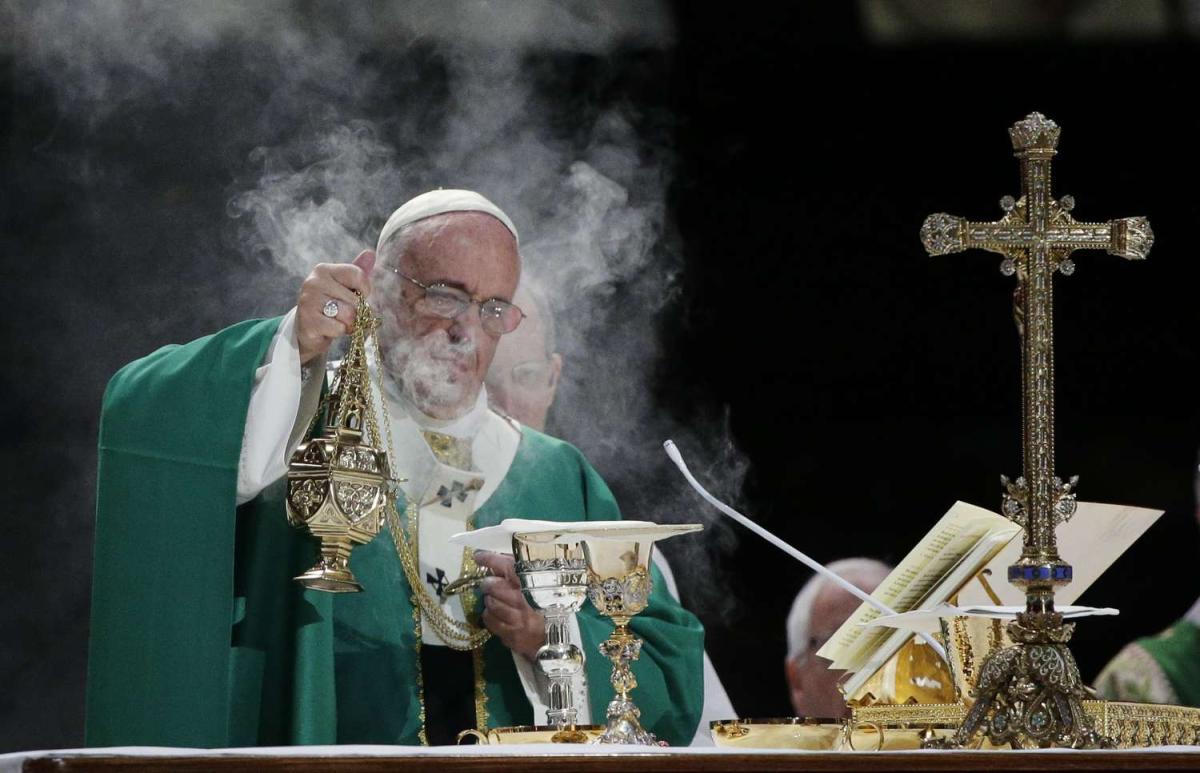
I’m not a lover of tradition. The school I attended in my youth was all gowns, mortar boards, titles, oak panelling, Latin mottos, and a penchant for male self-regard. I hated all that. It felt like a language I couldn’t speak, and as an individual I responded to warmth and informality instead. This is still my nature today. As an employee of a youth charity, I can say with complete certainty that not a single child or young person in our care benefits from overbearing, stuffy tradition, and that every person I work with is down to earth and unconcerned with ceremony.
I suppose this puts me on one end of the scale, while others are comforted by the familiarity and consistency of tradition and routine. Perhaps this is why Paul wrote the following in Romans 14:5 and 17, urging us not to quarrel about ‘disputable matters’:
One person considers one day more sacred than another; another considers every day alike. Each of them should be fully convinced in their own mind. Whoever regards one day as special does so to the Lord…
For the kingdom of God is not a matter of eating and drinking, but of righteousness, peace, and joy in the Holy Spirit
And again in Colossians 2: 16-17
Therefore do not let anyone judge you by what you eat or drink, or with regard to a religious festival, a New Moon celebration or a Sabbath day. These are a shadow of the things that were to come; the reality, however, is found in Christ.
The challenge for someone with a non-traditionalist viewpoint like my own is that although these passages explicitly give permission to each of us to make that choice privately (specifically whether or not one celebrates a Holy Day or sees all days as alike), we are not to judge those who take the opposite view. I do intend, however, to challenge a traditional approach because of its potential pitfalls, and am happy to field responses.
Tradition is just a shadow
I want to be honest – the stations of the cross and other aspects of memorialising Easter are off-putting to me. The key to celebrating Easter authentically must lie in the last statement of the quoted verses from Colossians:
These are a shadow of the things that were to come; the reality, however, is found in Christ.
The reality of Easter is not contained by religious structures, calendars, or events, but directly in Christ, engaged with through the Holy Spirit. I don’t understand why we would peer so intently at a shadow when we can cling to the one casting it.
Structure or substitute?
Though a structure can be helpful, it can also serve as a substitute for true spirituality. Let’s say a group of people attend the same events in the religious calendar. Perhaps liturgy is involved and they all speak the same words. Does this mean that each is authentically engaging with God? Of course not. Mimicry is entirely possible, and can lead to self-deception, believing ourselves to be celebrating or remembering Easter even if the evidence of Easter is lacking in our behaviour and in our connection with the Holy Spirit.
Personally, I shunt all tradition from the tracks and then peel up the tracks themselves. Give me open, uncharted countryside, and my Lord to walk with! Let Easter be deep in my heart each and every day, rather than focussed on at specific times of year.
Jesus was not a fan of tradition
Jesus challenged the potential deception of tradition in Mark 7: 5-13
So the Pharisees and teachers of the law asked Jesus, “Why don’t your disciples live according to the tradition of the elders instead of eating their food with defiled hands?”
He replied, “Isaiah was right when he prophesied about you hypocrites; as it is written:
“‘These people honour me with their lips,
but their hearts are far from me.
They worship me in vain;
their teachings are merely human rules.’
You have let go of the commands of God and are holding on to human traditions….thus you nullify the word of God by your tradition that you have handed down.
Tradition (and liturgy) enables the honouring of God with our lips while our hearts are far from him, and can nullify the word of God. Of course, the same could be said of contemporary worship. The structure is not the substance, and can end up being a substitute for meaningful, connected spirituality.
The only people Jesus rebuked with any consistency and in the harshest terms were religious leaders, who imposed traditions and structures to mask their lack of love.
The Danger of Tradition
We only need to look at the tension in Israel to understand how an obsession with the holiness of certain days and places leads to anger, competition, and violence. If all three monotheistic religions carried the truth in their hearts instead of placing paramount importance on calendars and the physical structures of this world, Israel would be a peaceful place. I’ll leave that there…
A living tradition
I used to attend a lively Pentecostal church in Nottingham, where I learned how to walk with God. I remember an impassioned sermon by the senior pastor, preaching at Easter. With tears in his eyes and a choke in his voice, he said:
“When I think about the cross, I see my Lord’s torture and humiliation. I hate to look at it, but the Holy Spirit makes me!”
I was utterly taken aback. My experience was one of trying to feel something about the cross, but rarely getting there. I wanted to connect more deeply to the Easter story, but I had little or no engagement with the Holy Spirit at that time in my life. This man’s experience was the opposite. Through the inspiration of the Holy Spirit, he saw the terror of the cross for what it was and was horrified to know his Lord, who he loved profoundly, had gone through it. The cross was real and visceral for him, so much so that it pained him to look at it, but the Holy Spirit drew him again and again to gaze at the crucified Lord of Love and embrace what happened there.
This is, in my view, true Christian spirituality – a vivid, tangible, communicative, fulsome connection with the Holy Spirit. In his company, all the stuff we strive for in a state of spiritual lack becomes a reality. Often, it feels like too much.
A call to repentance
Sometimes I despair at the lack of devotion to the Holy Spirit amongst Christian groups. I want every reader to understand that we can’t walk closely with Jesus without the continual infilling of the Holy Spirit, who is also called the Spirit of Jesus. We can’t hear Jesus’ voice or feel his touch, we can’t be transformed or know the freedom he promised, and we absolutely cannot enter into the deep mystery of the cross without his inspiration and presence.
I invite all readers whose walk of faith is dry to seek God with all their hearts. Turn from powerless traditions and drink from the living water made available in Christ. Break out of the trap, cast aside structures, and turn from shadows, choosing a life of daily communion with the Spirit of God.
For the kingdom of God is not a matter of eating and drinking, but of righteousness, peace, and joy in the Holy Spirit













